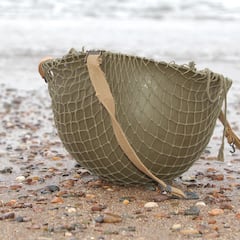Each year the anniversary is marked of the Allies’ land and sea invasion of northern France in 1944, beginning the race for Paris.

D-Day explained: The historic invasion that changed the world forever
June 6 sees the 81st anniversary of the fabled D-Day landings. The allies, led by the UK, the US, and the Soviet Union, which had done a lot of the heavy lifting, had forced the Germans into a vulnerable position. The Allies took advantage, invaded, and continued their assault to defeat the Axis powers, the name given to the military coalition that initiated World War II, namely Nazi Germany, Italy and Japan.
Regarding the terminology used, D-Day was the code for the day of the landings, while the Normandy landings is the term used for the location of said landings in northern France.
Your task will not be an easy one. Your enemy is well trained, well equipped and battle-hardened. He will fight savagely ... I have full confidence in your courage, devotion to duty and skill in battle. We will accept nothing less than full Victory! Good Luck! And let us all beseech the blessing of Almighty God upon this great and noble undertaking.
U.S. General Dwight Eisenhower
What happened on D-Day?
With the western allies forced out of Europe with the fall of France in 1940, the British were looking at ways to assist their eastern ally, the Soviet Union, against the invading Germans. Britain had tasted numerous defeats, including calamities in Norway and on Crete in Greece, and needed to provide support to the Soviets who were dealing with the majority of axis assaults from Summer 1941 onwards.
While war raged in Asia with invasion from Japan, the British concentrated their attacks in North Africa as the Italians, then the Germans, tried to break the British stranglehold on the Meditterranian Sea. By 1942 the US was fighting with the British, though it took until Summer 1943 to force the Axis out of Africa. Planning was initiated to leap back into Europe and by then the Soviets had turned the tables on the German army, forcing the invaders back after a series of huge encirclements and tank battles.
Related stories
Italy was invaded months later, but the real prize remained France. Months of deception followed, including the building of false tanks and military units, fake plans disseminated to the Axis and more.
Depsite troublesome conditions on June 6, the Allies pressed their attack. On five beaches, codenamed Utah, Omaha, Gold, Juno, and Sword, a force of dozens of nations made the first western allied footsteps into Europe in nearly three years. The deception had worked, with all forces able to establish beachheads from which to push further into France and western Europe. Paris was liberated in August 1944, and the race for Berlin was on with the Soviets. The 81-year remembrance in 2025 will be extra poignant as some suggest it may be the last with living veterans in attendance.


Complete your personal details to comment